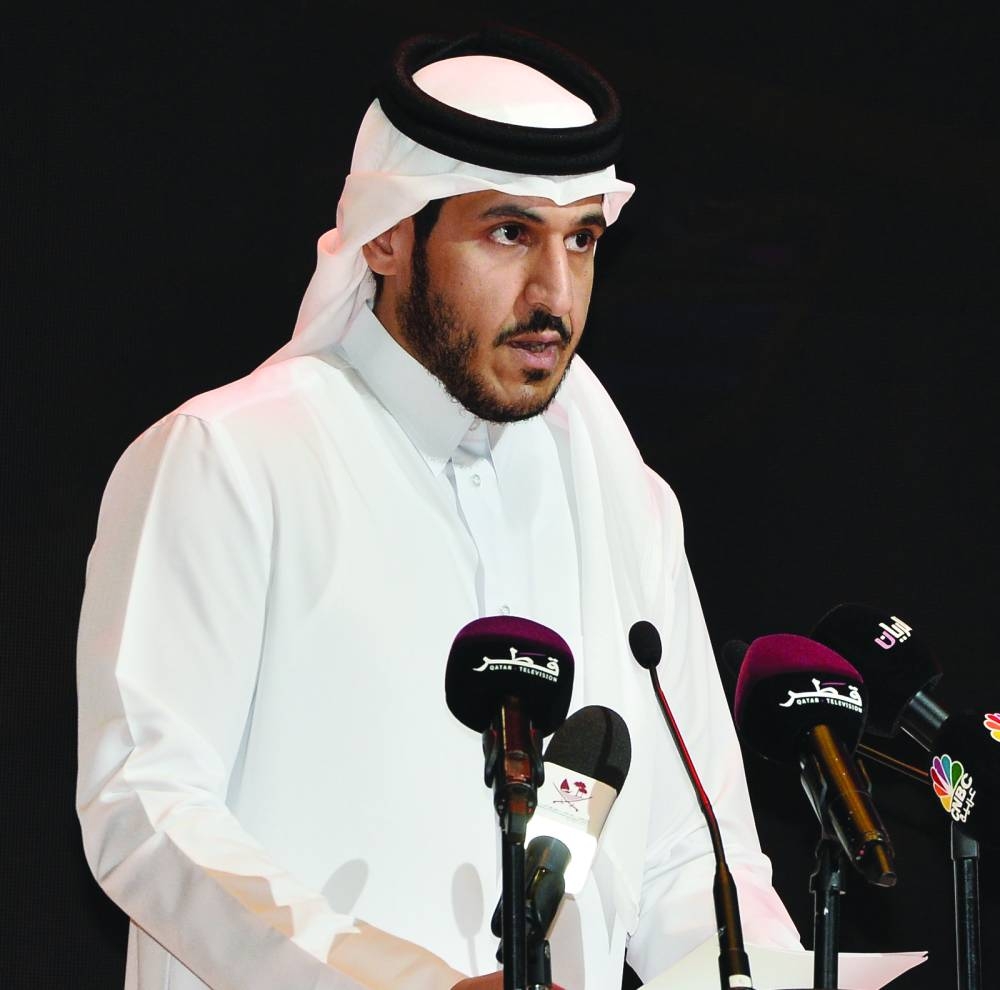Qatar’s economy grew by 4% in 2022, HE the Minister of Commerce and Industry Sheikh Mohamed bin Hamad bin Qassim al-Thani announced on Tuesday during the ‘9th Doha Islamic Finance Conference’.
In his speech, where he underscored the key role of technology in the development of and growth of Islamic finance, HE Sheikh Mohamed said Qatar’s budget surplus stood at QR89bn last year, making it the world’s fifth-largest market for Islamic finance.
The minister also emphasised that the financial sector is one of the main pillars of the Qatari economy, citing the quality and the size of its local assets and its resiliency over various regional and global crises.
In his speech, HE Sheikh Mohamed noted that major economies worldwide have been adopting advanced technological solutions to accelerate their respective digital transformation strategies.
“The Islamic financial technology sector is one of the most important sectors that has achieved significant expansion in the State of Qatar over the years,” stated the minister, adding that Doha is among the top 10 capitals for Islamic finance in Organisation of Islamic Co-operation (OIC) countries.
HE Sheikh Mohamed stressed that investments of leading economies in the financial technology sector in 2022 were over $164bn despite competition to adopt the best and most advanced digital programmes like the Metaverse.
He said the metaverse is expected to start a “tremendous revolution” in terms of solutions, such as applications for Web 3.0 and blockchain technologies, which are among the most important tools used in “financial portfolio technology.”
Sheikh Mohamed said, “The 9th Doha Islamic Finance Conference is an important opportunity to highlight the approach that has been taken at the local and global levels, in order to adopt the best technical standards and regulatory controls to benefit from artificial intelligence solutions and advanced technologies in the field of financial technology and Islamic finance.”
Dukhan Bank chairman Sheikh Mohamed bin Hamad bin Jassim al-Thani said the conference brought together top leaders and thinkers in Islamic finance to discuss the future and challenges of Islamic finance and banking.
He noted that financial technology constitutes the most prominent direction for the transformation of the world’s financial landscape due to the huge and rapidly developing capabilities that this technology contains that enable it to bring about a transformation in the financial markets and the financing environment.
“Banks have positive results that have enhanced their presence, expansion, and improved the quality of their services. However, there are challenges that may arise when the co-operation relationship turns into competition led by giant technology companies to enter financing operations, provide financial services, and compete with the banking sector, which may lead to confusion in the work of banks and the financial and banking environment,” he said.
Dr Khalid bin Ibrahim al-Sulaiti, chairman of the conference’s Organising Committee, said the conference “coincides with an overlapping scene suffering from economic imbalances and geopolitical turmoil,” with central authorities and organisations trying to control repercussions according to traditional economic perceptions and ideas that require more innovation and modernisation.
“On the other hand, the financial technology revolution and its developments come to compete with these economic systems from time to time to draw their attention towards a new environmental system for the economy that is being marketed as an alternative to solving the dilemmas of the traditional economy,” he said.
Al-Sulaiti added that the conference seeks to highlight the role of Islamic finance and the vision it can provide to overcome problems and build structures under an Islamic economic system through discussions and sessions that bring together specialists in Islamic Shariah, law, economics, technology, and industry practitioners.
He said, “The governing framework of Islamic law is not seen as a limitation of creativity and innovation but is rather a safety valve to achieve justice and balance between the interests of human beings and the worlds and environments that surround them.”
The conference, which carried the theme ‘Islamic Finance and Challenges of the Web 3.0’, showcased four topics, ‘Islamic Finance in the World of the Metaverse’, Regulatory and Supervisory Technology in Islamic Finance’, "Cross-border Finance and its Impact on Islamic Finance’, and "Sustainability in Digital Finance."

HE Minister of Commerce and Industry Sheikh Mohamed bin Hamad bin Qassim al-Thani delivering a speech during the ‘9th Doha Islamic Finance Conference’ held in Doha yesterday. PICTURE: Shaji Kayamkulam

